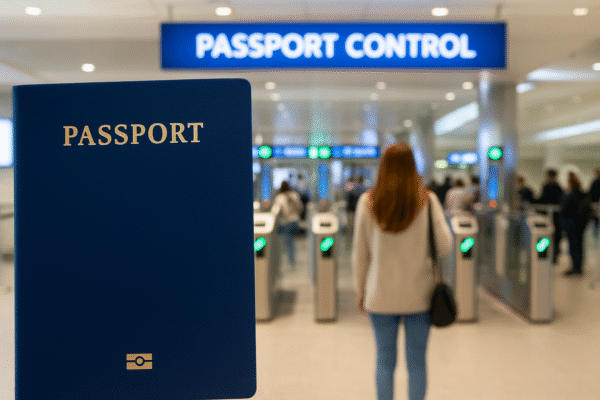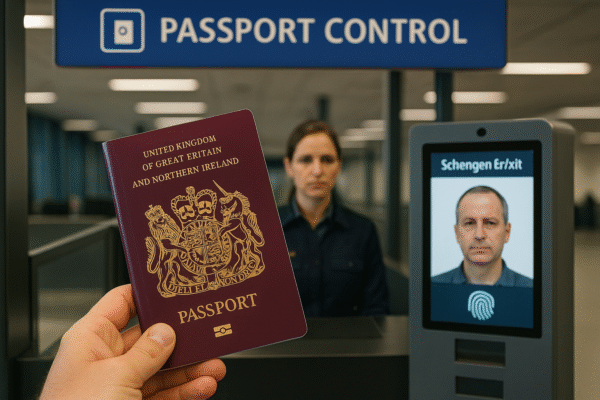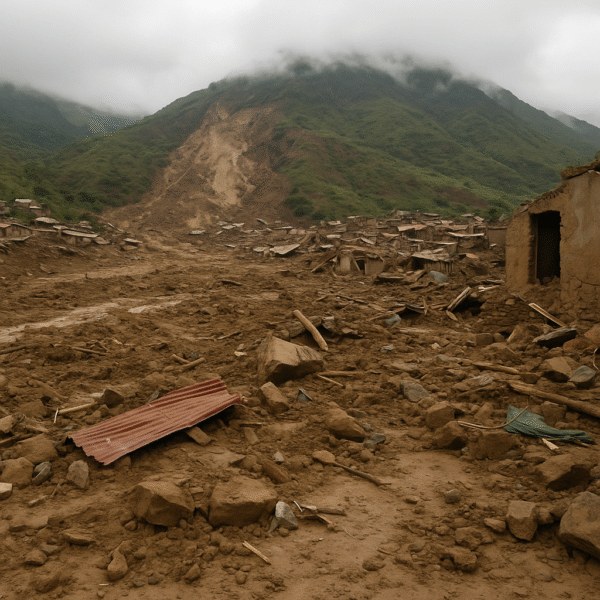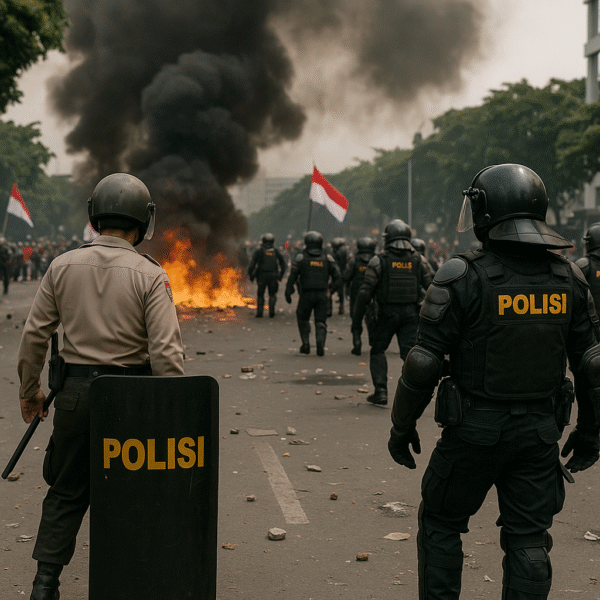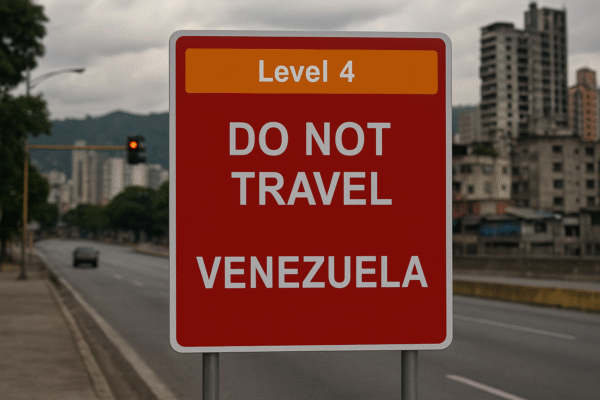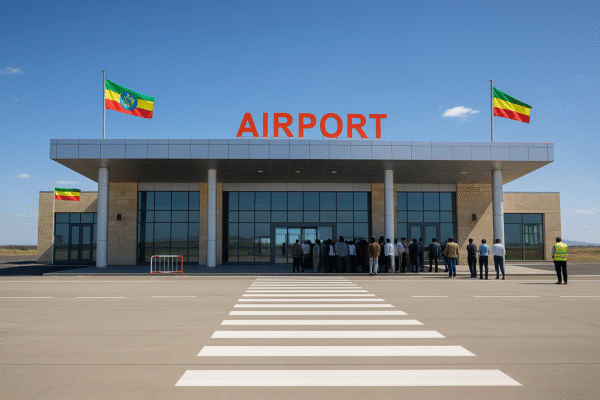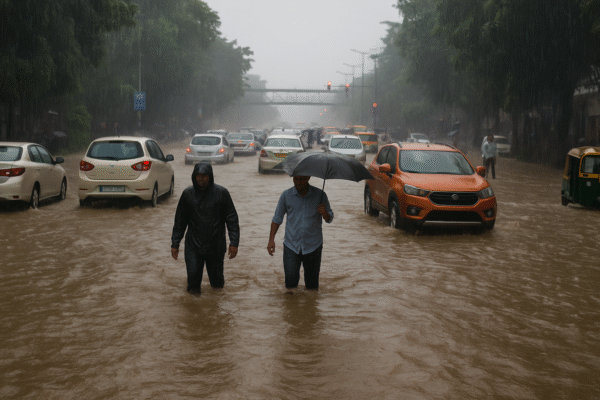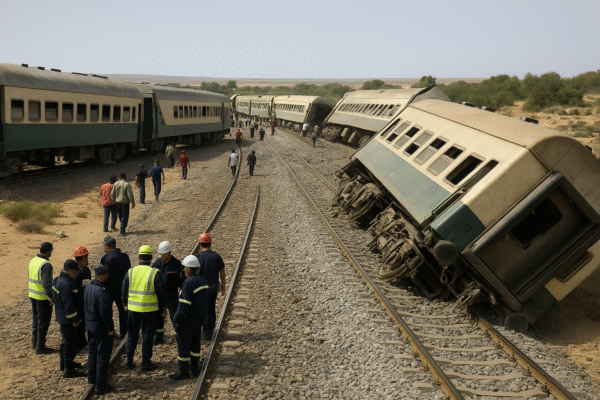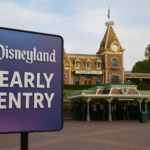On August 30, 2025, what was supposed to be a routine train journey from the Mediterranean province of Matrouh to Cairo turned into a catastrophe. Seven train carriages derailed, and two overturned near Fouka–Galal in the Matrouh Governorate. The violent impact threw passengers from their seats, with many breaking windows to escape.
By the time emergency teams arrived, three passengers had tragically lost their lives. More than 90 others sustained injuries ranging from minor cuts to critical trauma. Most victims received treatment in local hospitals and were later discharged, while a few remained hospitalized for further care.
Rapid Emergency Response
Egyptian emergency services responded quickly, deploying over 30 ambulances to the scene. First responders worked under intense conditions to provide immediate medical assistance, while hospital teams were mobilized to handle the sudden influx of patients. Authorities closely monitored the situation, promising a thorough investigation into the causes of the derailment.
Rail Safety Challenges in Egypt
This derailment highlights the persistent safety challenges facing Egypt’s rail network. Despite the country’s extensive train system that connects major cities and tourist hubs, it suffers from aging infrastructure, outdated signaling systems, and years of underfunding.
Accidents on Egypt’s railways are unfortunately common. In recent years, several collisions and derailments have drawn attention to systemic flaws. Overcrowding, poor maintenance, and insufficient staff training continue to make train travel riskier than it should be, particularly for first-time visitors unfamiliar with the system.
Historical Context of Rail Accidents
The latest derailment adds to a troubling history of railway disasters in the country. Deadly collisions and fires over the past two decades have exposed chronic issues within the system. Major accidents have often been linked to mechanical failures, human error, or the lack of modern safety protocols.
From large-scale disasters that claimed dozens of lives to smaller but still serious incidents, these tragedies serve as a grim reminder that reforms have been too slow to implement.
Impact on Tourism
Egypt remains one of the world’s most visited destinations, offering ancient monuments, vibrant markets, and cultural treasures. However, events like this derailment cast a shadow over the country’s reputation for safe and reliable transportation.
For tourists, especially those relying on trains to explore destinations like Cairo, Alexandria, Luxor, and Aswan, safety must now be a top priority. Rail travel, while affordable and convenient, carries risks that travelers should carefully consider before planning their journeys.
Safety Tips for Travelers
For those visiting Egypt in the coming months, safety-conscious planning can help minimize risks:
- Check Safety Records: Research train operators and review any recent safety advisories before booking.
- Avoid Peak Hours: Traveling during less busy times reduces the risk associated with overcrowding.
- Consider Alternatives: Buses, private car hires, or domestic flights are often safer options for long-distance travel.
- Stay Informed: Monitor updates from tourism authorities and local news sources for the latest safety information.
- Keep Emergency Contacts Handy: Always have contact details for your embassy or consulate in case of emergencies.
Government Pledges and Reforms
In recent years, the government has announced multi-billion-pound plans to modernize the railway system, promising upgrades to tracks, trains, and safety technology. However, progress has been slower than anticipated, and outdated systems remain in widespread use.
Officials have reiterated their commitment to overhauling the rail network, but until tangible improvements are made, travelers are advised to exercise caution.
Moving Toward Safer Travel
To restore confidence among locals and tourists alike, significant changes are needed within Egypt’s transport sector. Upgrading infrastructure, improving staff training, and implementing modern signaling systems will be crucial to reducing future risks.
In addition, transparent investigations into accidents and stricter enforcement of safety regulations can help rebuild public trust in rail travel. Collaborative efforts between government agencies and the tourism industry could also provide clearer safety guidelines for visitors.
Bottom Line for Tourists
Egypt continues to be a dream destination, with its rich history and world-renowned landmarks. However, the recent derailment is a stark reminder that rail travel carries risks that should not be overlooked.
Visitors should remain vigilant, plan transportation with safety in mind, and consider alternative modes of travel until the railway system demonstrates consistent reliability and safety improvements.
For more travel news like this, keep reading Global Travel Wire


